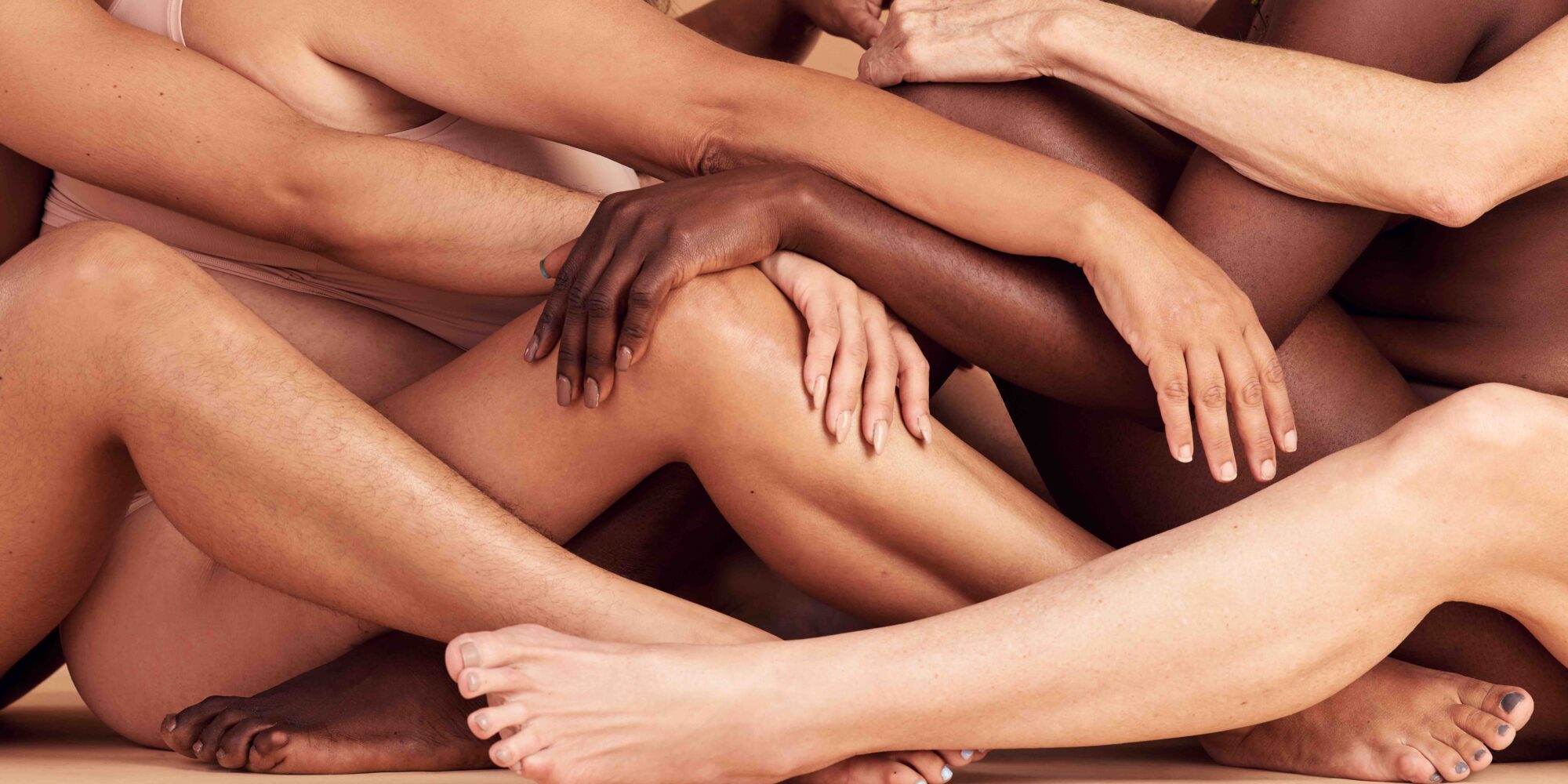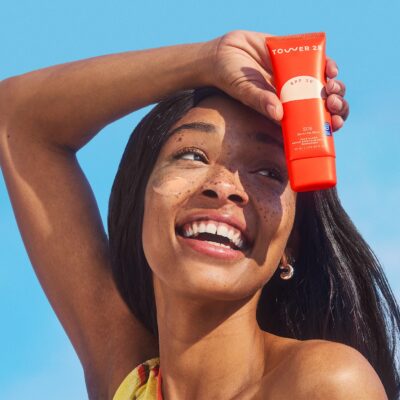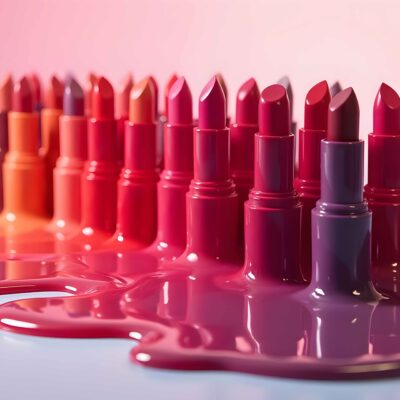
Will Beauty And Wellness Increasingly Put Community At The Center?
During organization CEW’s State of the Beauty Industry event last month, Sarah Jindal, senior director of beauty and personal care at market research firm Mintel, spoke about the concept of “self-care” evolving to “community care” in beauty and wellness. She said, “The kindness movement and community self-care will definitely expand as we move away from that more insular thinking, and start putting the health and well-being of the collective at the forefront.”
We were wondering if beauty businesses are noticing the evolution Jindal expects. So, for the latest edition of our ongoing series posing questions relevant to indie beauty, we asked 16 brand founders, executives and consultants, including Clare Hennigan, Jindal’s colleague at Mintel, where she’s senior global beauty and personal care analyst, the following questions: Are you seeing a shift to community care from self-care? If so, why is that shift happening? How can brands practically tap consumers’ interest in community care?
- Clare Hennigan Senior Global Beauty and Personal Care Analyst, Mintel
Self-care currently is and will continue to be very important to consumers. However, over the course of the pandemic, we’ve seen a larger focus on community. As we navigate post-pandemic life, the importance of communities, both in person and online, will continue to grow.
The singular (and sometimes exclusionary) approach to wellness will evolve to reflect the growing need for community and inclusion. Expect the kindness movement to expand, seeing more brands and consumers stress the importance of helping one another as a way to help everyone live better and feel better.
There are opportunities for beauty brands to be a part of the community care movement by demonstrating value in consumers’ daily lives beyond their beauty routines. For example, global brands can highlight how local retail stores benefit the communities in which they are present.
The focus on collective needs will see brands continue to take a more active role in destigmatizing once taboo topics (e.g., period care). When done authentically, brands can break down barriers and increase trust among consumers.
- Rachel Adams Director of Marketing and Communications, T3
Like any meaningful shift, it’s small changes at first that gain steam over time and become more widely considered and adopted eventually becoming more of a norm. Obviously, during the pandemic and lockdown, we were physically distanced from our communities, and yet there was a lot of discussion about considering the community when you do go out with people bring the concept of community care into more of a focus.
We were stuck at home and had time to create or evolve our routines during that time, so self-care was more of a natural focus because that is what we were experiencing isolation from community. But now that we’re able to be in our communities more regularly, we are shifting our focus outside of ourselves again and ensuring we not only nurture ourselves but support others and nurture others in our community, however each person defines that.
Speaking to hair communities specifically, as a company T3 continues to try and support and nurture a variety of hair communities. Whether it’s doing Lives with our long-time stylist partners Tippi Shorter Rank and Nai’Vasha during Black History Month to give a platform for frank conversions around textured hai or having events for different communities that are experience hair challenges, hair loss for example.
These are more specific planned initiatives, but also I think brands can create a space for conversations on social simply by representing different communities in their posts and allowing for conversations to happen in the comments.
- Wende Zomnir Founder, Caliray
I’m definitely seeing a shift to awareness around issues like sustainability that affect our global community, but because these issues are existential, awareness about them is inherently stressful.
So, while I think community care is on the rise, I don’t think self-care is going anywhere, and people will be making more self-care choices that align with their community values.
Brands can tap into the interest in community care through transparency and building their brand around values that benefit our larger human community. When we build brands around values, the whole supply chain evolves to meet those values, and then we have better opportunities to deliver products that align with our customers’ and community values. It’s a virtuous cycle!
- Chelsea Lewis Founder, My Mommy Wisdom
Witnessing the shift from self-care to community care has been heartwarming to say the least. When the term “self-care” was introduced to society, it was meant to be singular. It's the promise of making yourself a priority.
But as we have evolved, healed and learned more about ourselves, we are realizing community is equally as important as self. Practicing community care gives those around you the opportunity to show up for you and replenish you with the same energy you give.
My Mommy Wisdom has always understood the importance community, connection and how that plays in building trust amongst our customers. I think more brands are seeing the significance in that.
- Allison McNamara Founder, Mara
Self-care is by nature at the core of a beauty business. When you invest in a great skincare product, you’re investing in yourself. That being said, as a brand we are increasingly putting our own emphasis on community care and have seen a shift in consumer interest towards a more collective whole.
For community care and Mara on the macro level, we have continued to tailor our volunteering initiatives towards giving back and connecting with those within our own communities in Los Angeles. We frequently volunteer at our local community garden, planting and watering fruits and vegetables for the East Hollywood community, and help restore wetlands in Marina Del Rey by clearing out non-native plants alongside local volunteers.
Socially, we’re active within our private Facebook Group called the Mara Glow Group, where we connect with our community and actively discuss and talk through skincare concerns, product recommendations and new modalities.
On a micro level, for Valentine’s Day, we did a Galentine’s Day mailer and gifted our influencers’ person of choice a mailer as well.
- Samantha Brett Founder and CEO, Naked Sundays
I am definitely seeing this shift in consumers. People are starting to care more for others and do self-care in groups so that a friend in need really benefits rather than just being all about me, me, me.
I think this is a positive shift. Especially with so many of us constantly glued to our phones, it can be incredibly isolating. Getting together in real life or online and then encouraging a friend, partner, colleague or family member to take some time out for themselves is definitely a step in the right direction.
- Abena Boamah-Acheampong Founder, Hanahana Beauty
Honestly if you are taking care of yourself, self-care becomes selfless. Self-care is participating in community care. I believe a lot of this can turn into marketing jargon, but, in general as a brand, community care is what sustains us, from the community creating the products [and] raw materials to the brand team and our very own customers.
For myself, I need to be sure I'm taking care of me to push a level of community care. I don't think there needs to be a shift from one to another. It's creating an understanding and being mindful of how are you taking care of yourself, being intentional, prioritizing your level of growth and peace. When you promote peace within yourself, you promote it within your community.
- Vanessa Faddoul Founder and CEO, Ahimsa
As individuals are practicing self-care and seeing long-term benefits from their efforts, they are sharing those as part of a community.
The internet and the ability for individuals to find others who have similar interests has made community care more accessible and made it easier to form a virtual community to share experiences and offer advice. We can foster this as a brand by providing an avenue to bring individuals together with a common cause.
For Ahimsa, we are creating a community who wants to have healthy, clean and natural hair while working out.
- Eli Weiss Senior Director of CX and Retention, Jones Road Beauty
A decade ago, brands like Chewy and Zappos were early adopters in making a highly personalized customer experience part of their unique brand propositions. In the last few years, it's become almost a point of entry.
We are now seeing brands not only tout and invest in customer experience from the top down, but they are also prioritizing community building and engagement. The other shift we're seeing is that customer service, which often was outsourced overseas and was deemed a cost-center, is now being hired internally and is viewed as a marketing tool and growth engine. That's a significant change in the importance brands are putting on taking care of their consumers.
As the economy gets more unpredictable and the squeeze in venture funding continues, we're seeing brands forgo the standard CAC:LTV metrics and instead focus on first-order profitability. Aside from a great product, the biggest lever in increasing customer lifetime value is delivering a fantastic and memorable experience the first time you interact with them.
For example, at Jones Road Beauty, we created an internal concierge team who helps customers choose the foundation and face pencil shades that best match their skin before they purchase it. Our customers who were shade-matched with one of our team members have a 95% higher LTV than our standard customer.
Prioritizing experiences and creating a sense of community among our best customers continues to pay off for us in more ways than increasing our customer LTV. Last July, Jones Road Beauty started a private Facebook Group called the JRB Roadies, and we've been astounded by how quickly the group has caught fire and how consumers are connecting with each other through it.
In seven months, we have a community of over 12,000 members who are sharing their favorite Jones Road moments with each other. It's also allowing us to form very personal bonds with our best customers.
For example, we recently had a customer tell us that she had gone through chemotherapy and that our products brought her immense value during that time. We sent her a lovely care package and were able to strike an emotional connection with her. Plus, she also then shared what we did on TikTok and on our Facebook group which created a mini-viral moment for us that was instigated by a happy customer.
When it comes to great customer experiences, Jones Road Beauty is consistently motivated to break the script, do things differently, and treat customers the same way we'd treat a friend. It's helped us build a loving community and create strong customer connections that last a lifetime.
- Shai Eisenman Founder and CEO, Bubble Skincare
We are a community-focused brand, so we have been adapting to a community care model since November 2020 when our brand was launched, and we are excited to see other brands tapping into this as well.
At our core, we have always been a transparent company. We talk about what ingredients are in our products. We have a skin school portion of our website that educates consumers about ingredients and products they should be using, and we have a robust community program, which comprises our Geneva subgroups and brand ambassadors.
Our consumers are constantly looking at how to better themselves and are also so excited to share that with their community. We see a huge trend on social media that is "no gatekeeping," which encourages not hiding something when you find it to ensure that other consumers can have the same knowledge. We love seeing that on social media and connecting with those consumers and encourage our community to do the same.-
- Jasmin Foster Founder, Be Rooted
As a Black woman, I still think there is space and conversation around both. Community care has always been something that has been embedded in how we uplift our culture and help ensure that we continue to make generational changes.
However, we also deserve to get a chance to lean deeper into self-care as the mobility of our community allows for expense that typically is attached to many self-care practices. I think we are just fully embracing the duality of the needs of both.
- Lindsay Geinert Public Relations and Outreach Manager, Evanhealy
As a holistic skincare company, we have been encouraging this shift since our inception over 20 years ago. To be holistic means to be whole as well as to be a part of the whole. Therefore, self-care is community dependent. By supporting our communities, we bring each other up.
This shift is happening because we are realizing that everyone and everything is connected. No one can thrive without community. This concept is ingrained in holistic living.
To accomplish this and support our holistic vision, we elevate our community of farmers, ingredient suppliers and aestheticians. The sourcing of raw ingredients can either empower or disempower, and this will be reflected in the products that you create. The direct sourcing of our ingredients has allowed us to connect more deeply with our community of earth stewards.
We have also partnered with aesthetician-led organizations like the Lipstick Angels that provide clean beauty and skincare to cancer patients. And, finally, we host wellness events in a community setting where we come together to educate, connect, and bridge the gap between self-care and community care.
- Joy Ekhator Founder, Lovinah
I do see a shift towards community care after the lockdown. Where self-care is all about what you do for yourself spiritually, mentally, physically and emotionally, community care is more than one person, and it’s pretty much about joining or building a strong community around yourself and trying to be there for one another in different ways. Community care is also a very important component of self-care.
The lockdown and other events that occurred since 2020 made consumers more aware of the disconnect between brands and social issues. These series of events had people checking on loved ones, friends and acquaintances to find out about their well-being, offering emotional and other forms of support. Brands became more involved in social issues.
Brands can tap consumer interest by inviting and sharing user-generated content, listening to their customers, and understanding what’s happening in the community. Brands shouldn’t shy away from relevant conversation. They should take an active role by hosting events around the relevant topics both online and offline to build a stronger connection. Community care fosters a positive attitude, gives you that sense of purpose and helps to build stronger social relationships.
- Monique Kaminski Founder and CEO, Jeuneora
We are heavily community-first focused. We are committed to communities beyond our own, which is why being B Corp-certified is so important. It recognizes our holistic approach to sustainability and commitment to continuous improvement so we can leave a positive impact on the environment, our community of customers and our employees.
People are, more than ever, choosing to shop with brands that align with their values. This is that move from self-care to community care where people consider the wider impact of their choices.
- Jonina Skaggs Managing Partner, Skaggs Creative
During the pandemic, when everyone was forced into isolation, people had to discover new ways to practice self-care that not only balanced their physical health, but their mental health as well. Many found coping with this new reality difficult, especially for those young people whose lives are supposed to be taking off.
As a result, it’s created a larger community of those specifically online like through TikTok sharing their struggles and the many ways they are trying to take care of themselves, making others feel less alone. Self-care informs community care, which reinforces self-care.
Overall, brands need to become more personalized and move away from the “one message-fits-all” messaging. Mass marketing will always exist, but is and will become less and less effective. Brands need to localize their messaging to tap into different communities and psychographics.
The messaging has to become more docile and more relatable to allow the customer to decide how they want to engage in the brand messaging of those they are new to and in love with.
- Ajish Morris COO, Invity
Invity believes that cutting-edge research is a community effort. The concept of Invity originated from a passionate conversation between scientists who were collaborating to develop a crowd-research app for scientists during the days of COVID-19 imposed lockdowns.
Today, we have a community of over 15 scientists and researchers working together to identify and develop solutions to address the universal issue of aging. We also work with students, researchers and faculty from a number of universities and institutions of higher learning to collaborate in the area of longevity projects and nurture the next generation of longevity scientists.
If you have a question you’d like Beauty Independent to ask beauty entrepreneurs, executives and consultants, please send it to editor@beautyindependent.com.





